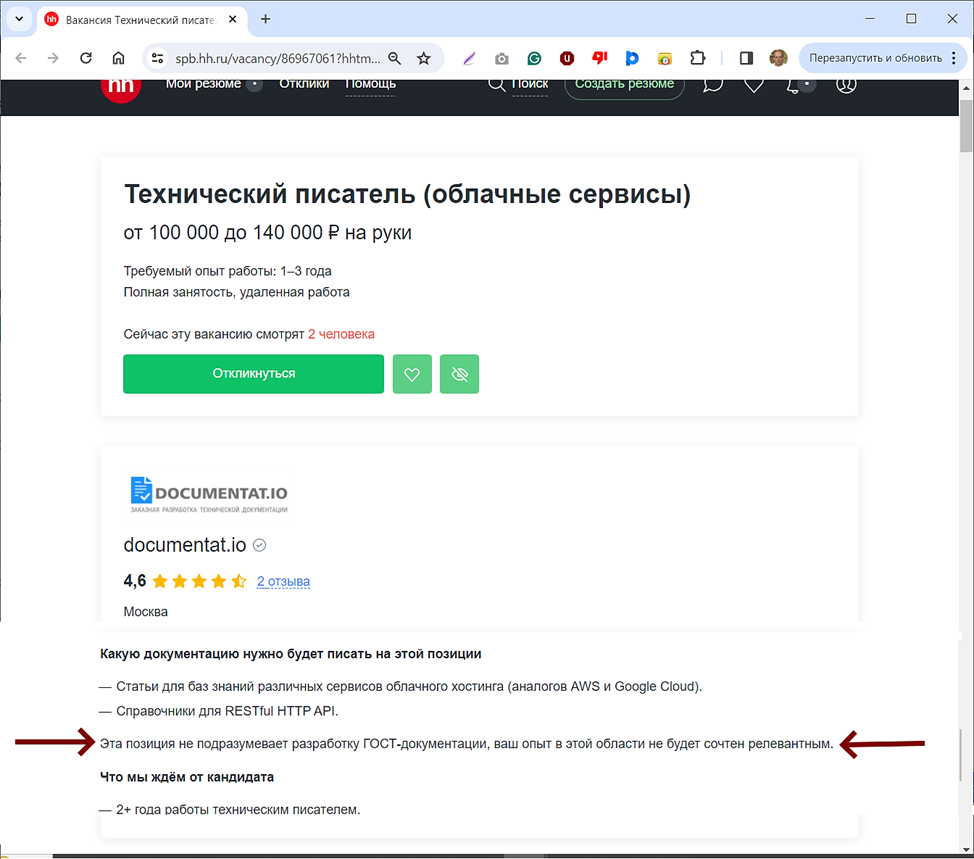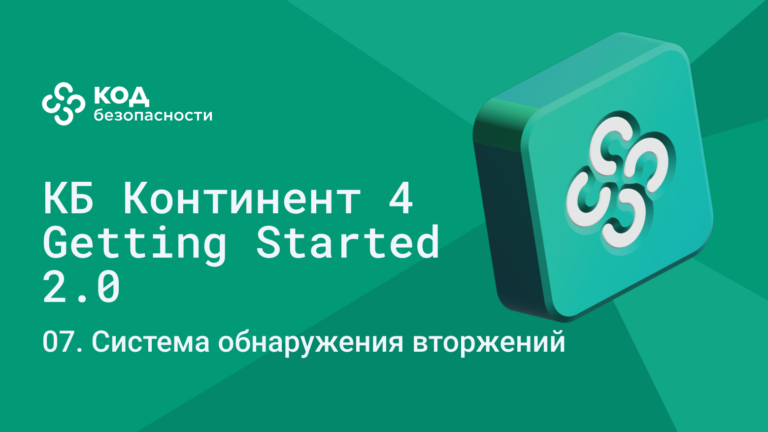Systemic error of the labor market or why there are not enough technical writers with knowledge of development languages and APIs
Techcopiers: Although it may not be obvious at first glance, copywriters have a fairly wide range in their professional growth and earnings. A universal recipe – we reach new heights with our minds and butts (by loading). Even though thousands of graduates of copywriting courses pour into the market every year (99% of them are girls), the percentage of talented and capable of writing on IT topics among them is the same as in the hospital as a whole, i.e. on the labor market. That is, at best, these will be a few percent that the market will accept.
Career growth for technical copywriters lies in specialization (this is also called niche within the community), and mastering the craft of writing in foreign languages. The ability to write on narrow topics in IT is considered one of the “fattest” niches, and many people dream of such a niche. By career growth, I do not mean the growth of junior-middle-senior – these grades for writers are very blurred – but the transition to work for a more famous and/or larger client and/or with interesting projects.
As for foreign languages, with the advent of generative models such as ChatGPT, the requirements for impeccable knowledge of the grammar and style of a foreign language have noticeably decreased. However, a level not lower than C1 is still desirable, since you need to evaluate what the neural network has given you and, in most cases, correct it manually. For example, if everything is more or less simple with English, then it is unrealistic to evaluate what ChatGPT wrote, say, in Chinese, without knowing the language.
The prospect of salary growth for technical copywriters, as well as career growth, very much depends on the niche, plus most copywriters earn extra money using an extensive method – having a main job, they also freelance for several customers at the same time. If you ask me what the top rates for texts are for technical copywriters, then in the Russian Federation for very narrow niches it can reach about 100-150 dollars per day in ruble equivalent. Although, maybe I haven’t seen all the top prices, then correct me. I will not talk about the cost of work by volume in characters, since in the upper segment they write not “thousands of characters”, but useful and expert content.
State specifications: These are people with a special character, capable of wasting their time at windmills. The thicker the project with the government customer, the thicker the documentation should be, which no one will read. I take my hat off to the patience of the GOST technical specifiers; I couldn’t do that.
I honestly haven’t met anyone among them who additionally freelances on articles and blogs. In my opinion, these are difficult types of work to combine for the character of one person. That is, it is mentally difficult – during the day you are a scribe of content that no one needs, and in the evening you are a creator. But I won’t be categorical, there are probably Gost specialists who write interesting articles and blogs, but their number is probably very, very small.
There is a considerable percentage of Gost writers who, over time, spend time writing really useful documents for commercial projects. But the majority remain on GOST standards, because as long as the state exists, they will not be left without work. Just like in the Bible about the exodus of the Jews from Egypt – why should we, slaves, follow Moses into the unknown, albeit beautiful, if we have cauldrons of meat here.
In terms of salary for “gost workers” it is usually 70-100K in March 2024 prices; in large companies it can be 100-140K, but this already includes the burden of managing a group of the same heroes.
As for the prospects for growth, both professionally and in terms of salary, they are insignificant within the “system”, and in the market for commercial projects their experience and skills may turn out to be unnecessary. As an example, here is a screenshot of a vacancy from the Moscow company documentat.io (see phrase with arrows).

Where do real technical writers come from?
Here I would start from the oven, namely, where do those real technical writers come from who can create complex documentation for other professional users. This will help to understand why there are so few of them in the labor market.
Courses immediately come to mind, but more on them below. Outside of courses, people get into the profession of technical writing from technical universities when they realize that programming does not interest them enough to become developers. The second path is for humanities students with a personal interest in programming and certain experience gained through their own software projects. Sometimes people from support move to technical desks because they feel they have the ability to create documentation and understand well how this very documentation solves many user problems.
Now about the courses. In comparison with the heap of copywriting courses, where infogypsies annually attract thousands of people with the promise of “from 0 to 100K rubles. in 2 weeks,” there are relatively few technical courses and they belong to quite respected organizations. Everything is clear here: who will undertake to develop the complex documentation of the graduates of the good wishes marathons.
My meta-analysis of type reviews TOP-X courses for technical writers allowed us to conclude that a significant part of the courses still leads students to a professional dead end, i.e. teaches the preparation of technical documentation in accordance with GOST. I won’t say that it’s absolutely bad to have such knowledge and skills, but such courses position you in a niche of government contracts, in which you may be bored, and the prospects for salary growth are limited.
There is one feature of any technical writing courses that you will easily discover when you study their syllabus – this is that after completing the courses, you will not be able to work as a technical writer, as you were promised.
The difficulty of the profession is that in addition to knowledge of templates for various types of documents, terminology and a rough idea of various software tools for creating text documentation, graphics and video instructions, you need to know technology stacks, have the skills to read and edit BPMN and/or UML Sequence diagrams, and describe logic data movement in the system being designed, be able to read code at the June level, and in different programming languages, not be afraid to delve into version control systems and be able to do much, much more.
In order not to be unfounded, I will provide a link to the professional standard “Technical writer (specialist in technical documentation in the field of information technology)”according to the order of the Ministry of Labor of Russia No. 609n dated October 3, 2022. It can be unequivocally stated that technical writers’ courses alone, lasting 25-30 hours, will not allow one to come close to the requirements of this professional standard.
Thus, the path to the technical profession is lengthened dramatically and goes beyond the horizon of reasonable expectations – after all, developer courses will still be required, which last on average about 9-12 months. It would also be a good idea to take a system analyst course to understand the architecture of the applications being described. And also UX/UI writing courses, etc. All this time, quite a lot of money is needed both for the courses themselves and for their own food and accommodation, until the technical profession begins to provide food.
This is where a systemic error arises in positioning the technical profession in the labor market not as a high professional, but as some kind of support employee in development teams. Which if there is, then good, but if not, we’ll get by.
A typical personnel approach in development: if there is a technical specification, then good, but if not, we’ll make do, let the testers write the documentation.
And this despite the fact that up-to-date and complete documentation saves the business very expensive developer hours (onboarding new employees, searching for the necessary information in the knowledge base, eliminating duplication of work) and allows you to get by with fewer support staff. More importantly, good documentation influences customer perception of the product and, consequently, the success of the product in the market.
A step to the side – the convoy considers it an escape
So, back to discussing the prospects of the profession – if a person with the qualifications of a technical writer has knowledge of programming, UX / UI and system architecture, does it make sense for him/her to freeze himself in technical writing? After all, having seen experience in creating documentation in your resume, recruiters will then position you as a technical specialist.
The answer is both yes and no. With a very strong desire and determination, you can achieve a salary close to that of developers with the Middle+ and Senior grades, but it will be very, very difficult. Therefore, the decision to change profession or remain in the technical register must be made as early as possible.
Here, of course, there may be options – for example, you completed a Python developer course, but there are legions of the same Python graduates on the candidate market. It is much easier to find a job as a technical technician with knowledge of Python. But then moving from technical specialists to developers will not be easy. Inside the company, you are unlikely to be easily transferred to developer – who will agree to expose the direction of the documentation, and for developer vacancies on the market you will again be competing with a crowd of juniors with Yandex Practice and Netology credentials.
Let's try to simulate this alternative future, if you change your profession. Suppose, after working as a technical technician for 2-3 years, you decide to go into development. Gritting our teeth, we pulled out an offer for a junior developer, but this would be a setback in salary. An increase in a developer’s salary in comparison with an experienced technologist will only occur after reaching the middle+ grade in development, and this is still a couple of years on average from a junior, and that’s not a fact.
How can an experienced technician organize further salary growth after reaching the top level? Today for technical information it is 200-280K (in March 2024 prices), depending on the company. It seems good, but this is still the top of the technical writing market with the very minimum of vacancies. Let's say, for comparison, senior developers with similar experience of 5-7 years or more are guided by higher remuneration figures.

The answer will be similar to advice to copywriters – you will have to take a part-time job and/or look for employment in a foreign company. The latter has become noticeably more difficult with a Russian passport after 2022, but is still quite possible in expat companies.
Conclusion
And at the end of the article, we come to understand the profession of a technical writer in IT as a one-man orchestra, capable of creating complex documentation about a product for users of different categories, while having the knowledge of a junior developer to understand the code and technical details, and a systems analyst to describe the architecture of the product , as well as UX/UI writing skills to create user-centric interfaces and enhance user experience.
Quite a lot of professional requirements for one person, isn't it? This is why there are such a small number of such specialists on the labor market, both due to the desire to do all this and the difficulty of entering the profession.
I’ll add a drop of advertising from our blog: the SSP SOFT company invites system analysts, Java, React and Python developers, 1C developers, DevOps and QA engineers for positions – see. page on hh.ru. If your specialty is not listed in the vacancies, send your resume anyway, because… new positions in teams open weekly (Telegram or job@ssp-soft.com).
Summary: the market did not value documentation, considering it a by-product of development, and continues to do so. The system error has not been fixed here and I do not see any prerequisites for this to be necessary for business. Perhaps you have a different opinion..?





